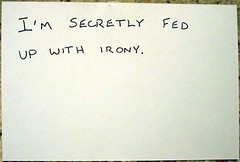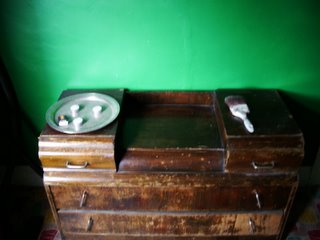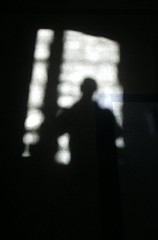hyssyttely
The resident ghost will be afk until the new year.
From behind 1.81
[...] when in 1993 someone threw a stone into the glass house of Kafka studies and caused some confusion. It was launched by Milan Kundera, the novelist who wrote in Czech and then, after his emigration, in French, and who had the chutzpah to claim he could have written The Trial and The Castle if Kafka had not happened to get there first. In 1993, the philological outsider Kundera published an extended essay with Gallimard, Les Testaments trahis, which was translated into German the next year and started a new trial against Brod [...] This trial, however, would satisfy no procedural rules; rather, in it Kundera totally confuses the roles of prosecution and defense and never accedes to that of the judge, a position which he nevertheless claims. One could call it Kundera's Kafkaesque trial against Brod, were it not such a corny joke. [...] Kundera charges him with unforgivable indiscretions, with treason against Kafka, for having published "even that long, painful letter found in a drawer, the letter Kafka never decided to send to his father and that, thanks to Brod, anyone but its addressee could eventually read...He betrayed his friend. He acted against his friend's wishes, against the meaning and the spirit of his wishes, against the sense of shame he knew in the man." It goes without saying that Kundera cannot sustain this accusation.
Rolf Tiedemann, "Kafka Studies, The Culture Industry,
And the Concept of Shame: Improper Remarks between
Moral Philosophy and Philosophy of History" in
Cultural Critique 60 (2005): 247-48.
Kalkwerk|Limeworks
...seine durch jahrzehntelange falsche Medikamentenbehandlung schon beinahe gaenzlich verkrueppelte, die Haelfte ihres Lebens in einem speziell fuer sie konstruierten franzoesischen Krankensessel hockende Frau, eine geborene Zryd, der jetzt, wie Wieser sagt, nichts mehr weh tue, habe Konrad im Umgang it einem Mannlicher-Karabiner angelernt, den die sonst vollkommen Wehrlose hinter ihrem Krankensessel versteckt immer in entsicherten Zustand griffbereit hatte; mit dieser Waffe hat Konrad sie in der Nacht vom vierundzwanzigsten auf den fuenfundzwanzigsten Dezember mit zwei Schuessen in den Hinterkopf (Fro), mit zwei Schuessen in die Schlaefe (Wieser), urploetzlich (Fro), am Ende der konradschen Ehehoelle (Wieser), erschossen.
Boil 1.05
Still...

from the image archive of
One Man Safari which now is the
Happy Palace
Spoil 1.62
The road signs (France is the only country I know where drivers are warned about beetroot on the road; BETTERAVES, I once saw in a red warning triangle, with a picture of a car slipping out of control). Beaux-arts town halls. Wine-tasting in smelly chalk0caves by the side of the road. I could go on, but that's enough, or I'll soon be babbling about lime trees and pétanque and eating bread dipped in rough red wine. Everyone has a private list, and those of other people quickly appear vain and sentimental. I read a list the other day headed 'What I like'. It went: 'Salad, cinnamon, cheese, pimento, marzipan, the smell of new-cut hay [would you read on?] ...roses, peonies, lavender, champagne, loosely-held political convictions, Glenn Gould...' The list, which is by Roland Barthes, continues, as lists do. One item you approve, the next stirs irritation. After 'Médoc wine' and 'having change', Barthes approves of 'Bouvard et Pécuchet'. Good; fine; we'll read on. What's next? 'Walking in sandals on the lanes of sout-west France.' It's enough to make you drive all the way to south-west France and strew some beetroot on the lanes.
J. Barnes, Flaubert's Parrot, 84.
These Wars of Ours
Thus spoke Father:
'The region of Mesopotamia is the source of all cultures.
Its current state is a reflection of the general demise of humanity.'






